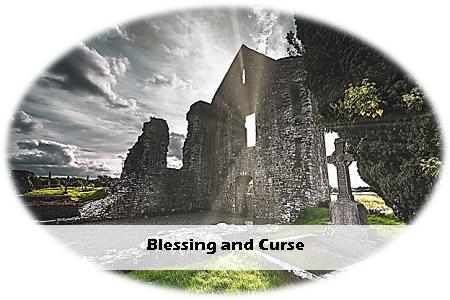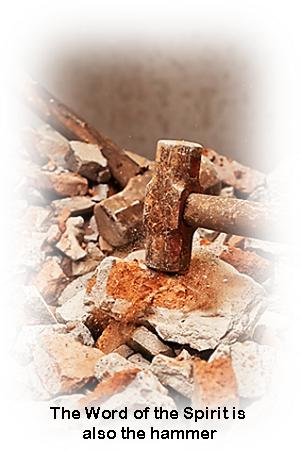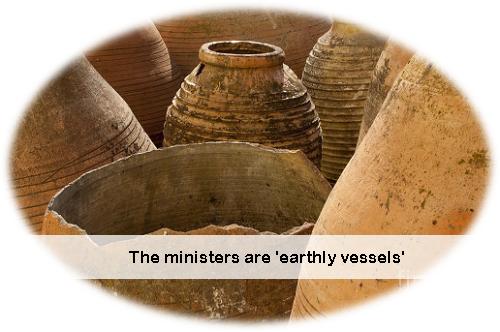The Sifting Effect of Preaching
The Sifting Effect of Preaching

Important Matter⤒🔗
If we reflect for a moment on the sifting or the separating effect of the preaching of God's Word, we have to realize that the preaching as such is an enormous event. We have to do with a very important matter, which can only fill us with awe and wonder if we consider that God is coming to men in the form of speech. God's kingdom comes to us in, with, and through the preaching of God's Word. The kingdom of God and especially He in whom this kingdom is represented and realized, our Lord Jesus Christ, is the contents of preaching. But also special aspects of God's kingdom are called the contents of preaching. The New Testament speaks more than once about a preaching of conversion. God's coming kingdom is realized in the way of conversion in those to whom the preaching of the kingdom comes.
Moreover preaching is also a preaching of conversion for the forgiveness of sins. If the kingdom comes in the preaching, it brings with it forgiveness of sins, and not only that, but also the complete, full salvation in Christ. Therefore we can also speak of the preaching of the gospel.
It is very important to see in the first place this positive function of preaching.
But we have to be aware also of the negative side. "By the preaching is also realized the judgment of God." This happens in a twofold manner: First in those who believe. They are and have been condemned and damned in Christ. The preaching of Jesus Christ is the most imaginable crushing sentence. For in Him the forgiveness of sins, grace is proclaimed. But there is only talk of forgiveness and grace for ungodly people! Forgiveness and grace cannot be granted and are not to be granted except to those who are struck by God's condemning judgment. Therefore there is nothing in the world so totally destructive for man than the preaching of forgiveness and grace. For this preaching is the absolute and permanent condemnation of everything that is man himself, what he has and what he is doing. Added to this, however, the preaching brings about judgment to those to whom the proclamation of the kingdom proceeded but who did not believe it. Paul declared to the Corinthians, "… we preached Christ crucified, a stumbling block to Jews and folly to Gentiles, but to those who are called, both Jews and Greeks, Christ the power of God and the wisdom of God" (1 Corinthians 1:23,24).1
Element of Judgment←⤒🔗
It is clear from the preaching of our Saviour Himself, especially from His preaching in parables, that the preaching of the kingdom contains not only God's blessing but also an element of judgment. Christ causes sifting, exactly by this way of preaching. The parable of the Sower shows that the seed brings to the light the condition of the soil. When the disciples ask the Saviour what this parable means, the answer is,
To you it has been given to know the secrets of the kingdom of God; but for others they are (preached) in parables, so that seeing they may not see, and hearing they may not understand.Luke 8:9, 10
After this parable Christ declares, "For nothing is hid that shall not be made manifest, nor anything secret that shall not be known and come to light. Take heed then how you hear; for to him who has will more be given, and from him who has not, even what he thinks that he was will be taken away.Luke 8:17, 18

The light (about which also vs. 16 speaks) means undoubtedly the gospel itself, which is preached by the Saviour. What is hid but what has to come to light is the unbelief and sin, which the hearers of the gospel bear in their hearts, but which have to become manifest by the preaching which reveals the hearts. So there is a great responsibility in hearing: Christ impresses upon His people both the blessing and the curse of the covenant, grace as well as judgment.2
Blessing and Curse←⤒🔗
The Holy Scriptures are full of the two sanctions of the covenant, the twofold effect of blessing and curse.
Extensively in Leviticus 26, God's blessing is promised to the people of Israel if this people listens to the LORD. But, "… if in spite of this you will not hearken to Me, but walk contrary to Me, then I will walk contrary to you in fury…" (vs. 27)
I think also of Moses' preaching of the sanctions of God's covenant when the people were standing upon the Ebal and the Gerizim (Deuteronomy 27:11-26, and also chapter 28). The notes on the old Dutch translation speak in this connection typically of "the register of the blessings" and "the register of the curse."3
The prophets further develop the theme of covenant blessing and covenant wrath.4
The preaching of God's Word is given in order to be accepted, not only in the course of time, when it suits, but right away, "today," Psalm 95 says. The hearkening to God's voice is the listening to God's Word. Otherwise, hardening can appear, as was the case in the desert (vs. 9ff.). Later on, this Psalm is quoted, not only in Romans 10 (where Paul deals especially with the preaching of God's Word), but also in Hebrews 4, in the context of the proclamation of the gospel.
To Take Offence at the Word←⤒🔗
Scripture tells us that one can also take offence at the Word. In the preaching of Isaiah, it is said of the LORD Himself,
…He will become a sanctuary, and a stone of offence, and a rock of stumbling to both houses of Israel, a trap and a snare to the inhabitants of Jerusalem. And many shall stumble thereon; they shall fall and be broken; they shall be snared and taken.Isaiah 8:14, 15
See also Isaiah 28:16, where it is said that God is laying in Zion a stone, a tested stone. Psalm 118 deals with the stone which the builders rejected, which however has become the head of the corner. The Saviour applied these words to Himself as the Messiah (Matthew 21:42 and 44) and the apostle Paul applied "the stumbling block" to the Jews, that the gospel went to the gentiles. The same is done by the apostle Peter before the Sanhedrin when he was defending himself (Acts 4:11), and in his first letter he made a contrast between "you who believe" and "those who do not believe" (1 Peter 2:7). The first category is building faith on the cornerstone Jesus Christ, while the second category "stumble because they disobey the Word" (vs. 8). That Word, Peter just argued at the end of the first chapter, "is the good news which was preached to you" (1:25). The unbelievers are stumbling.
But they were destined to do so (2:8). The Word itself hardens them so that they stumble and fall.
To Death and to Life←⤒🔗
The idea of a twofold function of the preaching is also found in another form in the second letter of the apostle Paul to the Corinthians. In the framework of the progress of the preaching of the gospel it is said that God "spreads the fragrance of the knowledge of Him everywhere. For we are the aroma of Christ to God among those who are being saved and among those who are perishing, to one a fragrance from death to death, to the other a fragrance from life to life" (2 Corinthians 2:14-16).

It is remarkable that the apostle calls himself "the aroma of Christ." What is first said of the proclamation of the gospel is now applied to Paul himself. The apostle says, I myself, in my work, in my travelling, in my struggle for the church, in my prayer and care for the flock, I am the aroma of Christ. In other words: he identifies himself actually with the service of the gospel as such. This is possible indeed because this service demands total commitment. The fragrance of the knowledge of God is at the same time the aroma of Christ. For in Christ the knowledge of God comes to its fulness and depth. If this service of the gospel is executed by the whole person, the apostle says it will have a double effect. That double effect is totally different. The same gospel will work life to the one and death to the other.
This is a Very Remarkable Idea!←⤒🔗
The same Word, the same gospel has two effects which stand diametrically over against each other. The same Word works for the one death and for the other one life. But it is the one, indivisible Word. So there is not a twofold Word, a twofold preaching and a twofold proclamation. No, exactly the same Word has a twofold effect. It brings to the unbelievers God's judgment of death and it causes destruction. But in those who believe precisely the same word works life by the power of God's grace. While it causes in the one an action from death to death, an action that leads inevitably and irresistibly to death that same Word causes in the other an action that leads unquestionably to life. That means: it is indeed wonderful, to hear the Word of God and to obey it. Then more light will be received, more glory, a going on from strength to strength, from the beginning of eternal joy to fulness of joy. But it is also terrible to be touched by the same Word, to hear it, but then to lay it aside. Then it means to go back from death to death, from death to eternal judgment, from condemnation to even heavier punishment. But always there is happening something, the one or the other.5
Resistance Against the Holy Spirit←⤒🔗
It is clear from the Scriptures that one can resist the Word of God. One resists then at the same time the Holy Spirit who is working with the Word. Stephen reproaches in his redemptive-historical sermon the Jewish leaders of his days, "You stiff-necked people, uncircumcised in heart and ears, you always resist the Holy Spirit. As your fathers did, so do you." Acts 7:51
The fathers have persecuted the prophets who brought the good Word of God. These prophets announced beforehand the coming of the Righteous One. But the Jews of his own days have betrayed and murdered Him. They have received the law – God's own Word – as delivered by angels. But they did not keep it. They rejected the Word of God (vs. 52, 53).
This resistance against the Holy Spirit is also clear from the last book of the Bible. The exalted Christ writes in Revelation 2 and 3 His letters to the seven churches in Asia. Seven times the Saviour ends these letters with the admonition, "He who has an ear, let him hear what the Spirit says to the churches." For His Word comes with grace and with judgment, with advantage and with disadvantage. He who resists that Word, undergoes the hardening effect of the Holy Spirit with that Word. It must be brought to the light, according to the Word of the Saviour in the gospel, in which direction it goes with the hearers. The antithesis will increase to its climax, and there are only two possibilities: "Let the evildoer still do evil, and the filthy still be filthy, and the righteous still do right, and the holy still be holy" (Revelation 22:11). Meditating upon this text, K. Schilder called it "the two-edged sword, driven into the flesh of the church by the Bishop of the souls Himself."6
John wrote these words precisely in the context of the mandate that the words of the prophecy of his book must not be sealed (vs. 10). The prophetic Word must be passed on and the preaching of the antithetical Word has to go on until the very end of history.

Always Efficacious←⤒🔗
Especially the letter to the Hebrews stresses extensively that God's Word is efficacious. Always a strong, powerful effect of God's Word is present, also regarding those who outraged the Spirit of grace, although they had become partakers of the Holy Spirit, had tasted the goodness of the Word of God and had once been enlightened (Hebrews 6:4f., cf. also 10:29f.).
A powerful effect is ascribed to the goodness of God's Word – so the gospel or the promise – also in the unbelieving members of the church. Without a doubt it is not saving. It is not the beginning and the guarantee of the ultimate fulfilment of God's Word in the new world. But it is indeed very real and very far-reaching. One must also be aware that it is even said of these apostates that it is impossible to restore them again to repentance – here considered as a change of insight. So there came about in these men indeed by the word such a repentance, which is now annulled in and through their apostasy and will never be renewed any more. But it was there once!
Moreover it is significant that it is said of those apostate members of the church that they crucify the Son of God on their own account and hold Him up to contempt.
One wonders how this is possible stricto sensu. However, this expression is completely transparent for him who understands the nature of the Word, drawn by this letter. The crucified and resurrected Saviour is presented in the goodness of God's Word with all the gifts which He obtained and distributes. In that Word He comes to the people and He gives Himself to them. Therefore the rejection and the contempt of that Word is in the full sense to assault Christ Himself and to hold Him up to contempt. In this way the letter to the Hebrews is preaching the mighty truth that the Word of God is always efficacious, although not always in the same measure, in the same direction, and with the same effect. The Word of God is like the rain, which descends from heaven always as the same rain. But land which has drunk the rain that often falls upon it, and brings forth vegetation useful to those for whose sake it is cultivated, receives a blessing from God. But if it bears thorns and thistles, it is worthless and near to being cursed; its end is to be burned (Hebrews 6:7, 8). In this way the letter to the Hebrews teaches and illustrates the saying of Paul that the Word of God is always a penetrating fragrance, for many certainly to life, alas for most people to death."7
The Word of the Spirit←⤒🔗
The Word of God is the Word of the Holy Spirit. Christ said to His disciples before He left,
When the Spirit of truth comes, He will guide you into all the truth; for He will not speak on His own authority, but whatever He hears He will speak, and He will declare to you the things that are to come. He will glorify Me, for He will take what is mine and declare it to you.John 16:13, 14
This is worked out in the letter to the Hebrews. "For the Word of God is living and active, sharper than any two-edged sword, piercing to the division of soul and spirit, of joints and marrow, and discerning the thoughts and intentions of the heart." (Hebrews 4:12)
Prof. C. Veenhof wrote in connection with this,
He who hears the Word of God has to do with the Holy Spirit, who is pushing the work of God in this world to its completion. He will come inevitably in the grasp of the Spirit. Wherever the Word of the Scriptures is raised, there is the working place of the Holy Spirit. He who is listening to the Word, lets the Holy Spirit work in him. This Word may never be separated from the Spirit. He never lets it go. It is even wrong to say that the Word is an instrument of the Spirit. For He IS always His Word. He is always Himself addressing the people in His Word. He is seizing them and He is achieving in them the Father's good pleasure. Therefore to speak about the Word 'as such' is a folly and a blasphemy. As the Word of the Spirit it calls the dead to life and it drills through the hardest walls of hearts. But as the Word of the Spirit it also hardens the hearts of all who resist against God and makes them at last inaccessible to each and every working of grace. In short, as the Word of the Spirit it is the seed of regeneration and the food of the soul, but also the hammer, which is mercilessly smashing everything that rises against God (…) The Word is pushing through to what is deeply hidden and is growing together in the dark shafts of human life. It tears asunder everything and it draws what was first tucked-away into the blinding light of God's holiness. Everything that comes up in the heart of man such as desires, endeavours and thoughts are sifted and judged by the Word according to the holy right of God. That is – according to the letter to the Hebrews – the majesty and the power, the salvation and the terror of God's Word which is preached among us.8

Old Testament←⤒🔗
We see this double effect of God's Word and the preaching of God's Word already in the Old Testament. Time and again there is the preaching of God's promise, but at the same time also the preaching of the threat of God's covenant. Noah was an instrument in God's hand for God's judgment, according to Genesis 6 and 7. But beforehand he warned the people. Therefore he is called "a herald of righteousness" (2 Peter 2:5) and it is also said, "by faith Noah, being warned by God concerning events as yet unseen, took heed and constructed the ark for the saving of his household; by this he condemned the world and became an heir of the righteousness which comes by faith" (Hebrews 11:7).
When God later gives His promise to Abraham, the LORD says about his descendants, "they shall come back here in the fourth generations; for the iniquity of the Amorites is not yet complete" (Genesis 15:16). First they were warned, but when the iniquity is complete they will be destroyed completely.
Not only in the historical books of the Old Testament is this double effect of God's Word shown, but also in the prophetic books. Isaiah writes in his prophecy, "…as the rain and the snow come down from heaven, and return not thither but water the earth, making it bring forth and sprout, giving seed to the sower and bread to the eater, so shall My Word be that goes forth from My mouth; it shall not return to Me empty, but it shall accomplish that which I purpose, and prosper in the thing for which I sent it" (Isaiah 55:10, 11).
God's Word and its preaching is not empty, so that nothing will happen when it is brought to the people, but it is the living Word of God, which always has effect. The LORD says to His prophet Jeremiah, "I am watching over My Word to perform it" (Jeremiah 1:12). The prophet has to proclaim that Word to the people and because of the iniquity it is even called first the destructive Word, and after that the constructive Word:
Behold, I have put My Words in your mouth. See, I have set you this day over nations and over kingdoms, to pluck up and to break down, to destroy and to overthrow, to build and to plant.Jeremiah 1:9, 10
There is a separating effect of the preaching of God's Word, and that effect is shown in both the Old and New Testament of the Bible.
Calvin←⤒🔗
This sifting effect of preaching is clearly understood by the Reformers and especially by John Calvin. In his Institutes he quotes with respect to this the calling of Jeremiah and the mandate to preach the breaking and building Word. Then he continues,
But the prophecy of Isaiah presses it even farther home, for the Lord sends him out thus: 'Go and say to the children of Israel, Hear and hear but do not understand; see and see but do not perceive. Make the heart of this people stubborn, and their ears heavy, and shut their eyes; lest they perchance see with their eyes, and hear with their ears, and understand with their hearts, and turn and be healed' (Isaiah 6:9,10; cf. Matthew 13:14,15; Mark 4:12; Luke 8:10; John 12:40; Acts 28:26,27; Romans 11:8). Observe that he directs his voice to them but in order that they may become even more deaf; he kindles a light but that they may be made even more blind; he sets forth doctrine but that they grow even more stupid; he employs a remedy but so that they may not be healed. And John, applying this prophecy, states that the Jews could not believe Christ's teaching (John 12:39), for this curse of God hung over them.9

Calvin stressed very much that the first function of the preaching is the power of God for salvation, according to Romans 1:16. It is the gospel, good tidings. But preaching of the Word of God can also have a condemning, a deadly effect. With respect to this Prof. C. Veenhof wrote,
In an intensive way Calvin deals with the fact that the preaching of the gospel can have this twofold effect. However, and with that we touch immediately the kernel of his expositions in this respect, Calvin does not think one moment to place this double effect on the same line. On the contrary, he states with emphasis that the relation between the preaching and the salvation worked by it, is totally different from the relation between the preaching and death, worked by it. Or, to say it in another way, Calvin teaches that, from the point of view of preaching there is a discongruity on principle between the working of the gospel with an effect of salvation and the other one in which it functions as a power of perdition. That the preaching of the gospel is working salvation is namely its specific nature, its genuine character, its proper office. If the preaching becomes a reason of condemnation and death for those who reject it, that is concerning this preaching something accidental, something occasional, even something that is clashing with its real nature. If the preaching of the gospel in contrast with its nature changes in a deadly, condemning power, that has to be ascribed to the malice, the sin, the guilt of men. The deadly and condemning effect of the preaching of the gospel is indeed regarding the godless people something proper, something genuine, but concerning the gospel this effect is always something accidental, something occasional, something that goes directly against its nature.10
I purposely gave this extensive quotation of Calvin by Prof C. Veenhof. In his reproduction of Calvin concerning the so-called occasional, accidental matter of preaching he went a little bit too far, according to my opinion. The condemning working of preaching is indeed not the first function of preaching according to Calvin. But at the same time the Reformer warned more than once against one-sidedness and exaggeration with regard to this. Prof. J. Kamphuis pointed already to the fact that Calvin used more than once the softening expression "in a manner of speaking," or "so to say" with relation to the deadly effect of preaching.11 Calvin did not promote complete inequality in the matter of the quickening and mortifying effect of preaching. L. Goumaz elaborated on that in his summary of Calvin's commentaries on the New testament concerning the office in the church, namely in a chapter about "The twofold authority of the office."
I quote, "Christ has assured on the one hand those who are His of the grace which is promised to them in the gospel in such a way 'that they expect this with an equally great certainty as if He had come down from heaven in order to testify it personally'; on the other hand the LORD has frightened the hardened sinners; by assuring them that their contempt of the ministers of the Word and the proclamation of forgiveness will receive its sanction. The ministers are but human beings, 'earthly vessels'; this weakness causes that they see their preaching constantly questioned. But Christ assures that in reality this weak human word proclaims the forgiveness of sins for those who receive it with confidence, but also the judgment of God to the wicked who refuse to accept the promise of grace."12
Calvin was very pessimistic concerning the number of unbelievers and hypocrites in the church. He wrote, "If the same sermon is preached, say, to a hundred people, twenty receive it with the ready obedience of faith, while the rest hold it valueless, or laugh, or hiss, or loathe it."13
A. Kuyper←⤒🔗
Later on also A. Kuyper stressed the first function of the preaching, namely the proclamation of the kingdom of heaven. "But also the other way around," he wrote in E Voto:
From week to week has to be announced in the name of God the judgment of condemnation to everyone who resists faith and who does not convert to God wholeheartedly. Like a hammer that smashes the rock, this terrible Word of our God has to come down on the souls of those who are hardening their hearts. As a two-edged sword that horrible word of judgment and eternal condemnation has to penetrate between the separation of soul and spirit and between the separation of joints and marrow. It has to be made impossible to you more and more to resist your God, so that you are doing finally one of the two: to give in over against God, or: to go out and to say: no, I do not come back under such a preaching. But in that way the key-power is executed.14

K. Schilder←⤒🔗
When the Holy Spirit is hardening the hearts of those who hear the Word of God but refuse to accept it, He abandons at the same time these unbelievers to Satan. Meditating on the text about Judas "after the morsel (or the sop), Satan entered into him" (John 13:27), K. Schilder wrote,
The sop which Jesus gives has the same effectiveness and the same effect as the Word which God gives. That Word, also, never returns void; it achieves whatever pleases God and quickly effects the purpose for which God sent it. That Word forces choices upon men. It converts men, or it hardens them. It makes men bow, or it stiffens their necks in haughty obstinacy. Both, the sop and the Word, send out the Spirit unto repentance, or Satan unto a hardening of the heart. Take the sop; listen to the Word. Afterwards men can say of you: Then entered the Spirit into him; or they can say: Then entered Satan into him. The one or the other effect will follow.15
I quote also something of what K. Schilder wrote in Christ in His Suffering about the text "Simon, Simon, behold, Satan demanded to have you, that he might sift you like wheat, but I have prayed for you that your faith may not fail" (Luke 22: 31, 32): "Christ knows that Satan is but the second, that God is the first cause of the sifting. Therefore He turns to God asking that faith may not abate – May they remain in Thy hands, Father! Thou dost sift; and Satan sifts. But Thy method is not his! – Satan wants to keep the chaff and blow the wheat away. Christ would retain the wheat and take the chaff out of it. By sifting, Satan wants to suppress the good by the evil; Christ, also by sifting, would overcome evil with good."16
Opened and Closed←⤒🔗
Many texts from the Holy Scriptures are still to be mentioned, in which the sifting work of God the Holy Spirit is shown, as He is working with God's Word. For the Word of God is the sword of the Spirit, which cuts from two sides, as is said in the Notes of the Old Dutch translation on Hebrews 4:12. They point then also to Revelation 19:15, where is said of the exalted Christ that He is called the Word of God and that from His mouth issues a sharp sword with which to smite the nations, and He will rule them with a rod of iron. When He smites with the sword of the Word, nobody can stop Him. In Revelation 3 He is called "the holy One, the true One, who has the key of David, who opens and no one shall shut, who shuts and no one opens" (vs.7).
He gives indeed an open door in Philadelphia (vs.8), but it is also possible that one closes his ears to what the Spirit says to the church, and that one does not want to open the door, although the knock at the door is clearly to be heard. (3:20).

That brings us to what we confess in Lord's Day 31 of the Heidelberg Catechism about the keys of the kingdom, to which A. Kuyper already pointed. First the kingdom is opened by the preaching of the gospel. But in the case of hardening of hearts follows the closing of the kingdom. That is the double effect of preaching. In this way the Word of God comes to all the hearers, without distinction, with command of faith and conversion. I quote with regard to this Prof, B. Holwerda:
They all have to hear without distinction the promise. Then this promise itself will achieve separation: the one believes, the other one hardens his heart. They all have to hear without distinction the admonition. The one is converting, the other one refuses conversion. In this way the kingdom of God is opened for the one and closed for the other one by this comforting sermon. But also the one is brought to conversion and the other one to hardening by this chastising sermon. But always something happens, the one thing or the other. Nobody remains the same under the sermon. That is the enormous seriousness of each and every sermon…17
Elsewhere Holwerda wrote: ''What about so-called distinctive preaching? Does the minister have to divide the congregation into groups, and does he have to address himself to every part separately and distinctively? Let him preach the gospel to all of them! Then he uses the axe of Christ for all of them. Only then! Woe to the preacher who assumes there to be separations and brings the word of the text only to the one part. He has to bring it to all of them; in this way Christ will make separations! This makes the sermon a thousand times more dangerous."18
Conclusion←⤒🔗
I come to a conclusion. Besides the blessing effect of preaching there is also the condemning effect of it and this effect is not something accidental or occasional, but the reverse of the first effect. This twofold effect may never be neglected in preaching. Often the word of the apostle Paul is quoted that we can eat and drink at the Lord's Supper judgment upon ourselves (1 Corinthians 11:29). But what about to hear judgment upon ourselves? Precisely in connection with the fact that we can spurn the Son of God and profane the blood of the covenant by which we were sanctified, and outrage the Spirit of grace, the letter to the Hebrews mentions the "fearful prospect of judgment, and a fury of fire which will consume the adversaries" (Hebrews 10:27). Then the Spirit hardens the hearts, He abandons to Satan. He abandons the unbelievers to themselves, to their own sins.
Let us maintain our confession in the Canons of Dort, "It is not the fault of the gospel, nor of the Christ offered by the gospel, nor of God, who calls through the gospel and who even confers various gifts upon them, that many who are called through the ministry of the gospel do not come and are not converted. The fault lies in themselves" (III/IV.9). Indeed, "the fault lies in those who are called, in their culpable carelessness or slackness or worldly-mindedness."19
Take heed then how you hear! But also: take heed then how you preach!

Add new comment